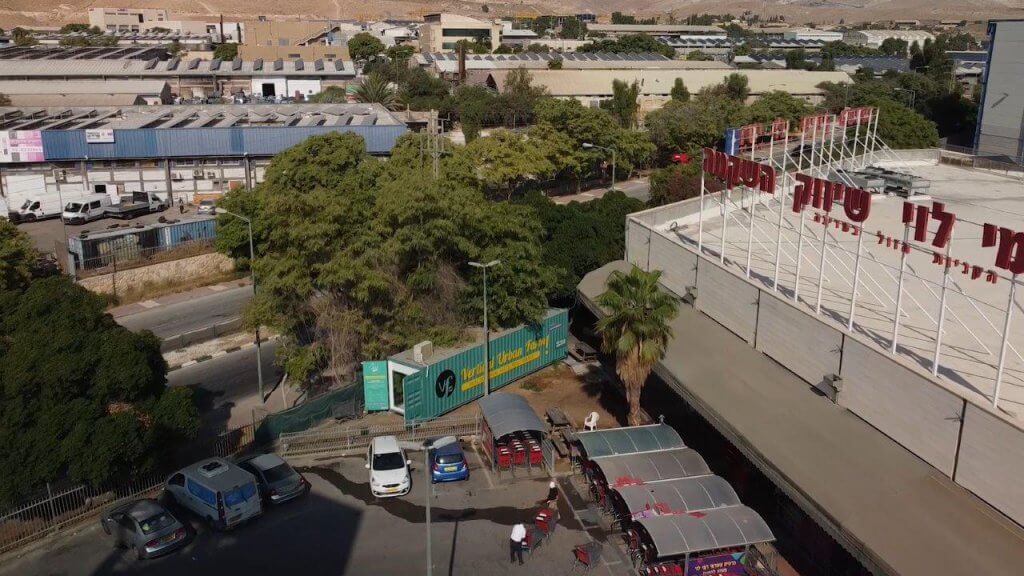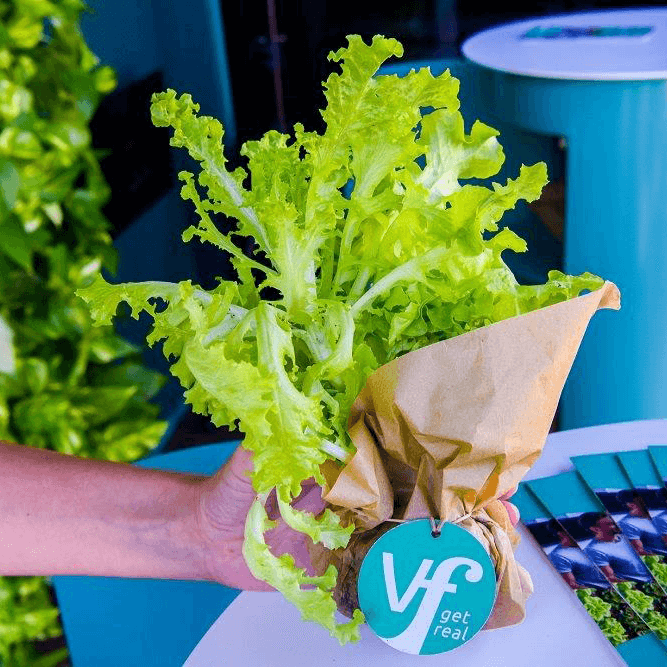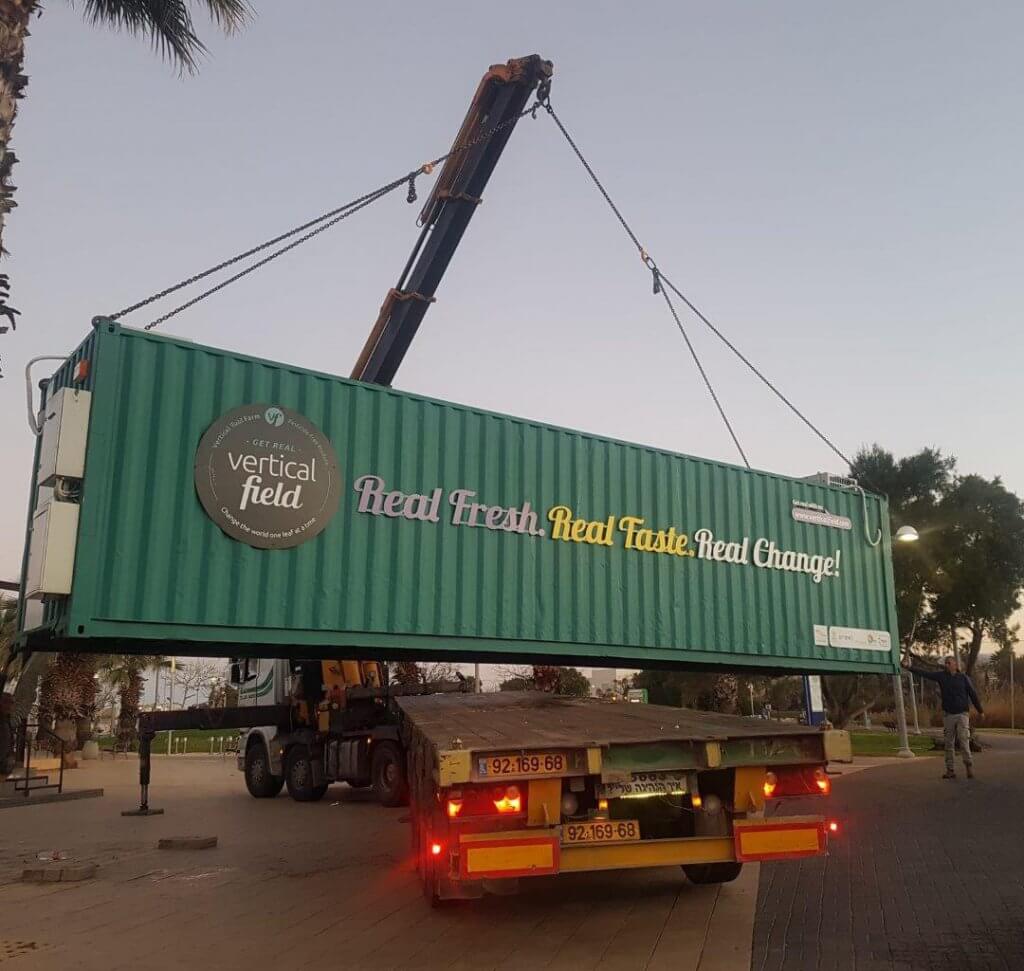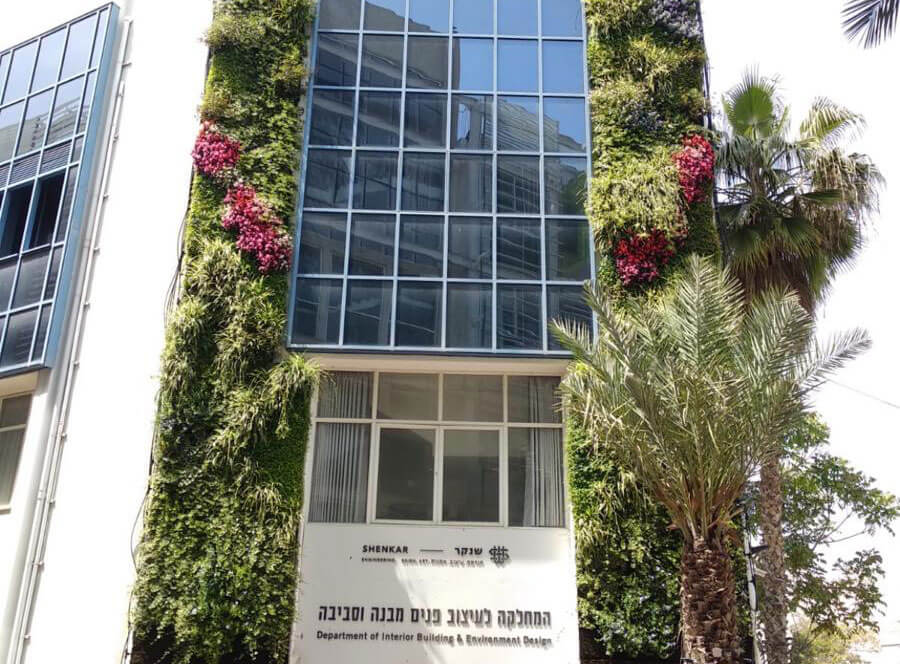Rami Levi: Supermarket Chain
Bringing Vertical Farming to a Commercial Supermarket Chain
Retail-Based Pilot Project
Vertical Field’s main retail-based pilot was conducted in partnership with the third largest supermarket chain in Israel, Rami Levy. The goal of the pilot was to explore the unique opportunities that vertical farming can offer at a popular, inexpensive, and widely accessible supermarket chain, as it relates both to building a commercial business model and understanding consumer behavior and preference among diverse communities.
Over the course of a year, beginning in March 2019, Vertical Field installed indoor urban farms outside of three Rami Levy supermarket branches located in Modiin, Ashdod, and Bnei Barak. Consumers at these locations differ in terms of socio-economic status, ethnicity, religious background, and more, providing us the opportunity to explore consumer behavior and interest among a very diverse group of customers as they relate to the novel and niche-market of produce grown on-site.
The pilot sought to determine the potential for supermarkets to grow their own food within the context of a profitable and replicable business model.

The Challenge:
Integrating Vertical Farming into the Supermarket
The pilot explored a number of questions and challenges around how to bring a unique product to the market, properly reach consumers, and determine commercial viability.
Challenges include:
- Creating a replicable business model that will fit the financial needs of the supermarket and customers of all diverse backgrounds, religious groups, socio-economic groups, and ethnicities.
- Introducing a new innovative product and brand to consumers who are unfamiliar with vertical farming.
- Identifying the ideal placement of the container. (We wanted to find a location that will be visible to customers and the entrance to the supermarket wasn’t necessarily available.)
- Selling produce with the soil bed attached, unsure if the consumers would opt for a new experience when they are used to buying pre-washed and pre-packaged produce.
- Designing and building a partnership process that includes educating the retailer on the: advantages of on-site produce; operational and logistical components; the financial benefits, and more to ensure that they fully adopt, integrate, and internalize the vertical farm into their business.
Overcoming changes in consumer behavior due to Covid-19, such as: less frequent supermarket trips, less time spent inside the supermarket, less meandering and exploring.

The Solution:
The challenges were addressed and solved in a number of ways
- The pilot helped identify that vertical urban farming can be done in a commercially viable way. Numerous expenses in the supply chain were minimized, such as distribution costs, transportation costs, and food losses. As the unit can also receive data from the supermarket regarding quantities of produce demanded, agronomists were able to plant more precise quantities, preventing inventory-related financial losses..
- In order to reach a wide variety of consumers and to ensure a sustainable and economic commercial model, we maintained competitive prices, allowing Vertical Field produce to be sold below a premium. This helped diverse customers who were not familiar with our product try it out and return to purchase more, as well as build an adaptable model for the retailer.
- The initial point of sale of VF produce was adjacent to the vertical farm (located in the parking lot of the supermarket). We then moved the point of sale inside the supermarket (to the main checkout counters) in order to ensure a convenient shopping experience, which proved to be the best option.
- Selling produce with the soil bed attached provided many advantages. It provides a competitive advantage, tells our unique story, increases the shelf life of the produce, preserves the freshness and nutrient-density, and increases the overall quality of the produce. It also adds an innovative approach to urban farming and local produce that encourages a deeper understanding of food in the urban sphere.

“The Rami Levy chain understands the social responsibility that it has for customers as related to food security and supplying the highest quality products while maintaining low prices. Our customers bought Vertical Field’s produce during the pilot, and returned to purchase more. Therefore, we have decided to expand the partnership with Vertical Field to additional branches of the supermarket, and to offer fresh, high-quality, and pesticide-free produce in a way that increases shelf-life for our customers.”
Results:
National-Scale Expansion!
There have been a number of direct and indirect results from the Rami Levy Pilot. As commercial viability, consumer interest, and financial benefits proved successful, Vertical Field has signed a national-scale agreement with Rami Levy. As part of the multi-million dollar agreement, Vertical Field will install vertical farms at dozens of locations over the course of 2021, enabling the supermarket chain to sell lettuce and other produce that grows vertically inside the company’s proprietary geoponic (soil-based) container technology.
The project enables both Rami Levi and it’s customers access to high-quality, affordable, fresh, and local produce that is pesticide-free.
Economically, there have been a number of positive results as well via the minimized costs of transportation, preservation, and all other intermediaries in the supply chain, allowing the supermarket full control over their produce.
Subsequent national-scale agreements have also been signed in the Ukraine and in the United Arab Emirates, which will further enable us to explore the wide-scale commercial viability of vertical farming to relieve environmental and economic constraints and improve food security in complex locations, such as cities and drought-prone regions.




